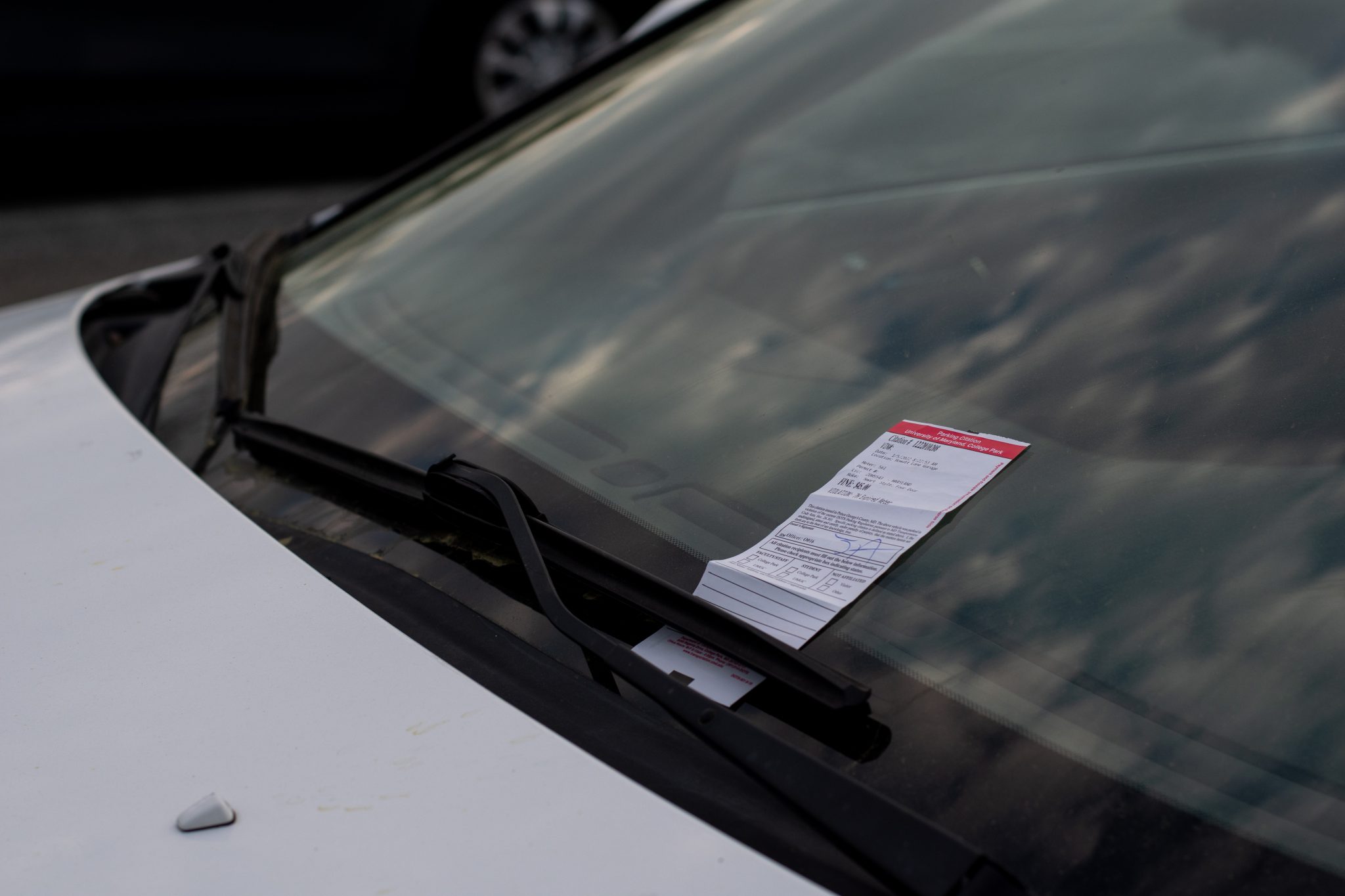A few months ago, Fady Yanni got a parking ticket that “sparked an idea.”
With just seven months of coding experience and an entrepreneurial spirit, the senior information systems major’s parking ticket spurred him to create a program called FRICK DOTS, which he markets as ensuring to never get a parking ticket from the University of Maryland Department of Transportation Services again.
FRICK DOTS stands for front rear integrated camera kit, Yanni explained. The program, which is intended to be used with dashcams on the front and rear of vehicles, uses Computer Vision and Machine Learning to detect parking police and more specifically, DOTS vehicles, he said.
If the program detects a DOTS vehicle, it will call ParkMobile and pay for additional parking using information from user input such as location, parking space number, license plate and credit card information, Yanni said.
“This is essentially a smart dashcam that can ensure that you never get a parking ticket again by automatically paying your parking for you,” Yanni said.
Some of Yanni’s friends, who are computer science majors, were brainstorming ideas for Bitcamp, the university’s annual 36-hour hackathon. While his friends were working on a project that required coding skills beyond what Yanni could help with, he said it inspired him to work on his own project, which would eventually become FRICK DOTS.
Created in about 30 hours, FRICK DOTS won third place from audience voting at Bitcamp, Yanni said. He slept about six hours the whole weekend and his bed was a table in the technology advancement building for about three of those hours, he said.
[UMD funds construction of bike lanes along Purple Line]
But in the end, Yanni said it was worth it.
“It was really cool just to kinda be part of that experience and do something that had an impact and … was talked about among [computer science] people,” Yanni said.
Yanni has been an entrepreneur since he was 15. Though he was working on other projects, he said the support he has gotten from the campus community about FRICK DOTS has inspired him to take it further.
“It really just drove me to kind of work hard on this and to make a prototype and eventually sell it,” Yanni said. “So I’m excited.”
But turning an idea into a usable product that is marketed to a larger audience could showcase different obstacles.
“Marketing doesn’t just mean selling a product. It means you understand customer needs. And so in that case, this is good marketing,” Amna Kirmani, a Ralph Kaiser professor of marketing at this university, said. “When you take something like this into the outside world, there’s a lot of things that you have to watch out for.”
Because Yanni is so new to coding, Kirmani said if he is serious about fully developing and monetizing FRICK DOTS, he should register a trademark for his idea before someone with more coding experience takes his idea.
[UMD DOTS director updates SGA on plans for parking fee, shuttle buses]
In addition to trademark concerns, Kirmani said it’s important to consider the possible misuses of the program because a user could choose to not pay for parking initially but pay through FRICK DOTS when the program detects parking police.
“Right now, the intention is that you pay for the amount of time you actually park. That seems to me a perfectly appropriate thing to do. But if I’m gonna use this, just to avoid paying anything, then it’s not so good,” Kirmani said.
Gopal Mahajan, a senior computer engineering major who learned about FRICK DOTS through a Reddit post, said he was impressed by the program.
As someone who has been ticketed many times and understands “just how frustrating it is” to be ticketed, he said he would like to see a feature in the program that would notify him if he did receive a ticket.
Yanni acknowledged there are “a lot of kinks” that need to be worked out with the program. He’s now working on a functional prototype that he can test in real-world scenarios, an app that will accompany the program and an Instagram account so people can keep up with the program’s progress.
“The beginning part of a business is always incredible, and I think it’s even made even better when you have such a passionate audience that really resonates with your product and resonates with the problem that you have,” Yanni said. “It just makes it even better … seeing how much support I’ve been getting … [is] a huge motivator.”



